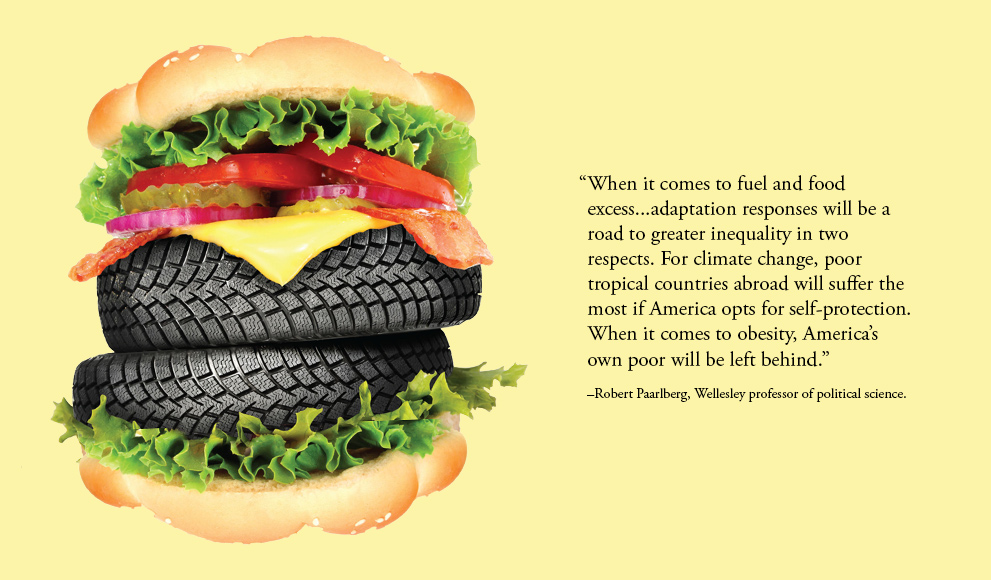Professor Robert Paarlberg’s Work Calls Attention to Problems that Adaptation to Excess Will Generate, in the U.S. and Abroad.

Why does America consume so much food and fossil fuel? Robert Paarlberg, Betty Freyhof Johnson ’44 Professor of Political Science, argues that the nation’s tendency toward unmitigated excess can be traced to the traits that make America exceptional: its unusual material endowments, culture, and political institutions. According to Paarlberg, this over-consumption will have far-reaching consequences unless the U.S. alters its current path and changes its policy response to obesity and climate change.
In an opinion piece published by the World Financial Review, Paarlberg wrote, “Unable to discipline consumption of food and fuel through public policy, the United States is now pivoting toward a posture of adaptation, trying to work around the health complications brought on by obesity and protect against the new risks of climate instability. This shift is important because it will worsen inequalities both within America and beyond the nation’s shores.”
Paarlberg’s work is calling attention to the serious equity problems that adaptation to excess will generate, both at home and abroad. His new book, The United States of Excess: Gluttony and the Dark Side of American Exceptionalism (Oxford University Press, 2015), contains the first study to consider obesity and climate change side-by-side, as parallel policy failures in America.
Paarlberg wrote, “America’s policy drift toward self-protective adaptation will undercut its already weak efforts to reduce CO2 emissions, thus significantly increasing climate risks for others who lack self-protection options. With obesity, America’s embrace of personal rather than government responsibility works well enough for the nation’s more fortunate citizens… For Americans with less education and fewer resources, particularly disadvantaged minorities, personal responsibility without stronger public policy action will remain inadequate.”
In a piece for Salon.com, Paarlberg wrote, “When it comes to fuel and food excess, adaptation responses will be a road to greater inequality in two respects. For climate change, poor tropical countries abroad will suffer the most if America opts for self-protection. When it comes to obesity, America’s own poor will be left behind.”
Paarlberg’s research focuses on international food, agricultural policy, and farming technologies and poverty in the developing world. He has been a member of the Board of Agriculture and Natural Resources at the National Research Council and a consultant to the Bill and Melinda Gates Foundation, the United States Agency for International Development, the International Food Policy Research Institute, and the Food and Agricultural Organization of the United Nations.
We would also like to congratulate Professor Paarlberg who, after 39 years at Wellesley College, is retiring at the end of the school year. Members of the College community are invited to attend his last lecture, which will be given for his course on International Economic Policy, on Friday, May 8 in PNW 212 at 1:30 PM.
